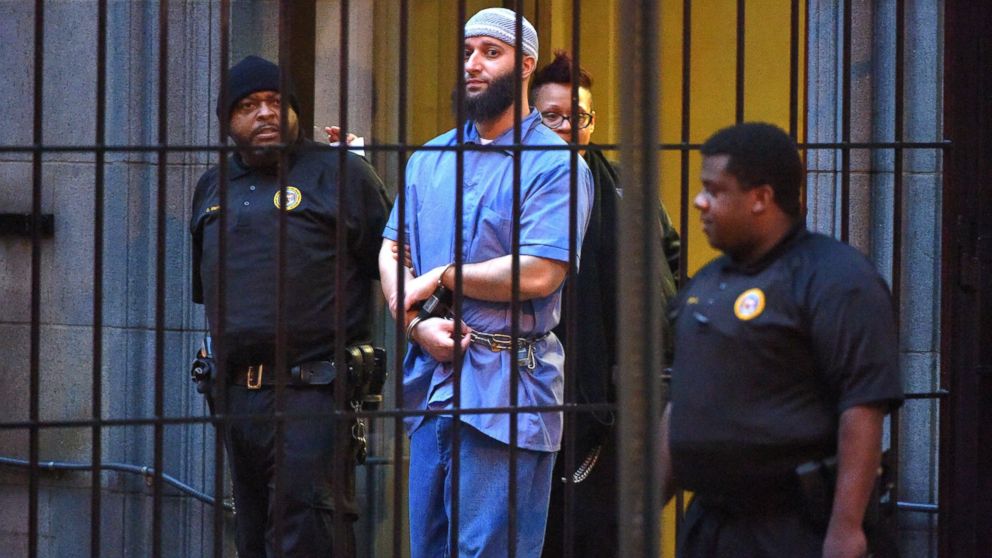Adnan Syed's Chance at New Trial Rests in Judge's Hands
— -- The fate of Adnan Syed -- the man at the center of "Serial" -- now rests in the hands of a retired Baltimore City judge, who says he will make a decision about whether or not Syed gets a new trial in the coming weeks.
Syed, a convicted killer, has spent 16 years in prison, after the state says he killed his former high school classmate Hae Min Lee. The pair had dated. Lee was found strangled in Leakin Park in 1999.
“I am proud to represent this man,” said C. Justin Brown, at the start of his closing arguments standing next to a jumpsuit-clad Syed, hands shackled at the waist. “He didn’t kill Hae Min Lee. He couldn’t have.”
The court reopened Syed’s 2012 post-conviction hearing so that his lawyers could present new evidence thanks in part to “Serial.” The post-conviction hearing was originally slated to last three days but went on for five because of the amount of witnesses called to testify. On Tuesday, counsel provided rebuttal evidence and presented their closing arguments, rehashing days’ worth of evidence and testimony before the judge.
“We proved our case, your honor,” Brown said. Syed’s lawyers, Brown and Christopher Nieto, called seven witness during the hearing. They argued for a new trial for Syed on two points: an alibi witness who said she saw Syed at the Woodlawn Public Library at the same time the state says he killed Lee but was never sought out for her testimony in Syed’s 2000 trial, and cellphone location data that was deemed “unreliable” by AT&T that was used against him during his trial, pinpointing him near the wooded area where Lee was buried.
“I’m incredibly grateful for the opportunity to present new evidence before the court," Syed said in a statement. "I’m incredibly grateful for the love of my family and friends who stood by me all this time.”
Both of these issues, Syed’s lawyers say, are due to “failures” of Syed’s 2000 trial lawyer Cristina Gutierrez. Several of the witnesses Brown and Nieto called previously worked with Gutierrez, each remarking that Gutierrez was overworked and declining in health, unable to perform her job to the best of her abilities.
But in the state’s closing arguments, Maryland Deputy Attorney General Thiruvendran Vignarajah called Gutierrez a “meticulous” and “tenacious” lawyer, saying she did everything she could do to “vigorously advocate” for Syed, “pouring every ounce of her great talent” into defending him.
“To have her name smeared as it is, as a vehicle to make this case…it is not fair,” Vignarajah said.
The state called only two witnesses of its own to testify against Syed: a former Woodlawn Public Library security guard, and FBI Special Agent Chad Fitzgerald, who corroborated the testimony of a cellphone expert who placed Syed at the scene of the burial.
The security guard was called to verify that there were not security cameras in the library. However during testimony he said “it’s possible” there were.
Perhaps the most crucial part of the hearing was last week, when Brown called Asia McClain (now Campbell) to testify as the alibi witness or “missing piece of the puzzle.”
McClain testified that she was with Syed at the time of the killing, but she says she didn’t call the police initially to divulge her story because of fear.
“I started to call the police and then I chickened out. I think I hung up cuz I got scared.”
She didn’t make herself known to Gutierrez but she wrote letters to Syed. Syed told Gutierrez, didn't pursue the angle.




